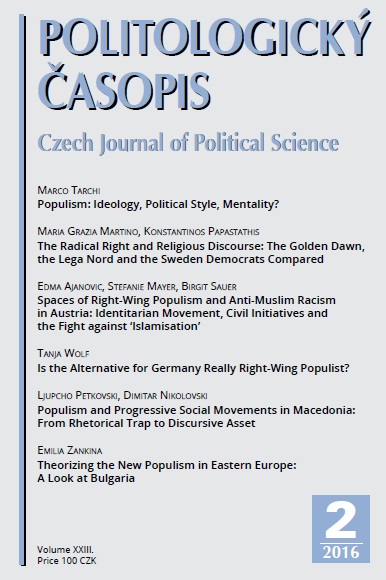Theorizing the New Populism in Eastern Europe
Theorizing the New Populism in Eastern Europe
A Look at Bulgaria
Author(s): Emilia ZankinaSubject(s): Politics / Political Sciences
Published by: Masarykova univerzita nakladatelství
Keywords: populism; personalist parties; transaction cost; Bulgaria
Summary/Abstract: This article offers a new theoretical approach to populism that allows for a better understanding of the rise of populism in Eastern Europe and its appearance from across the political spectrum. It argues that populism is a political strategy utilized by personalist parties to reduce the transaction costs of politics by increasing the use of informal political institutions, which have an association with direct and immediate action, and decreasing the use of formal political institutions, which have connotations of slow or non-action. This approach allows for better understanding of voter behavior and voter support for populist parties and introduces a dynamics-based component which helps understand the rise and evolution of populist parties and changes in their voter support, further linking them to changes in the political and economic context. Moreover, highlighting the strategic aspect of populist political behavior, this approach allows for examining the effects of populism on institutions (the transaction cost framework constituting the core of institutional economics), business, and the functioning of democracy. The Bulgarian case is used to illustrate and substantiate this theoretical proposition and to stipulate the effect of populist movements and parties on democracy.
Journal: Politologický časopis - Czech Journal of Political Science
- Issue Year: XXIII/2016
- Issue No: 2
- Page Range: 182-199
- Page Count: 17
- Language: English

